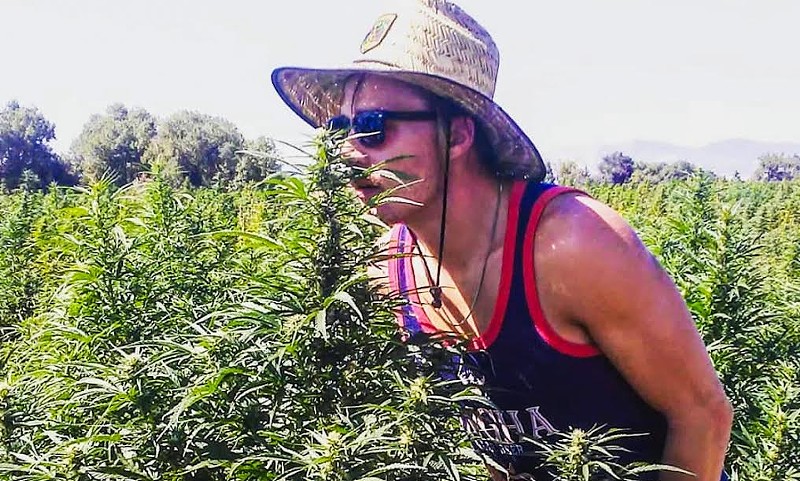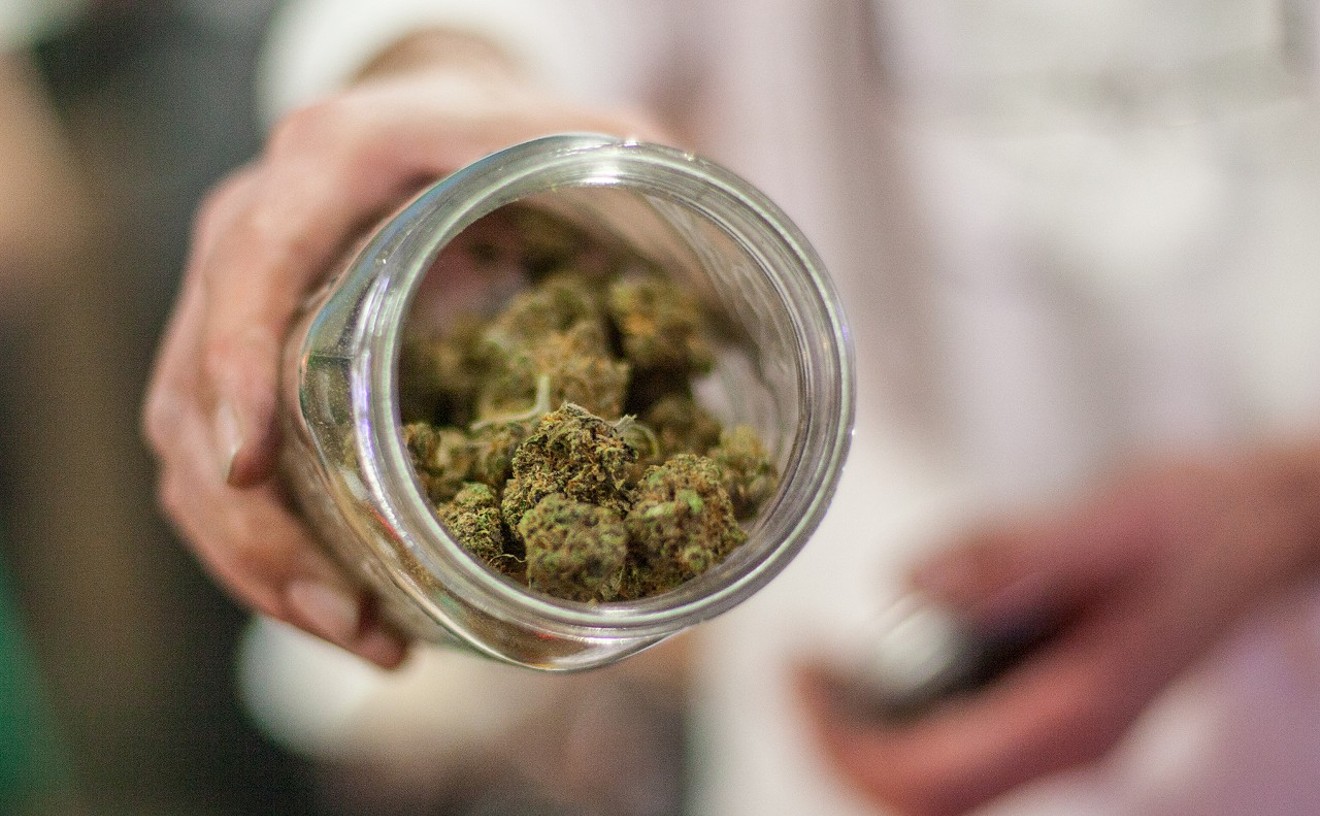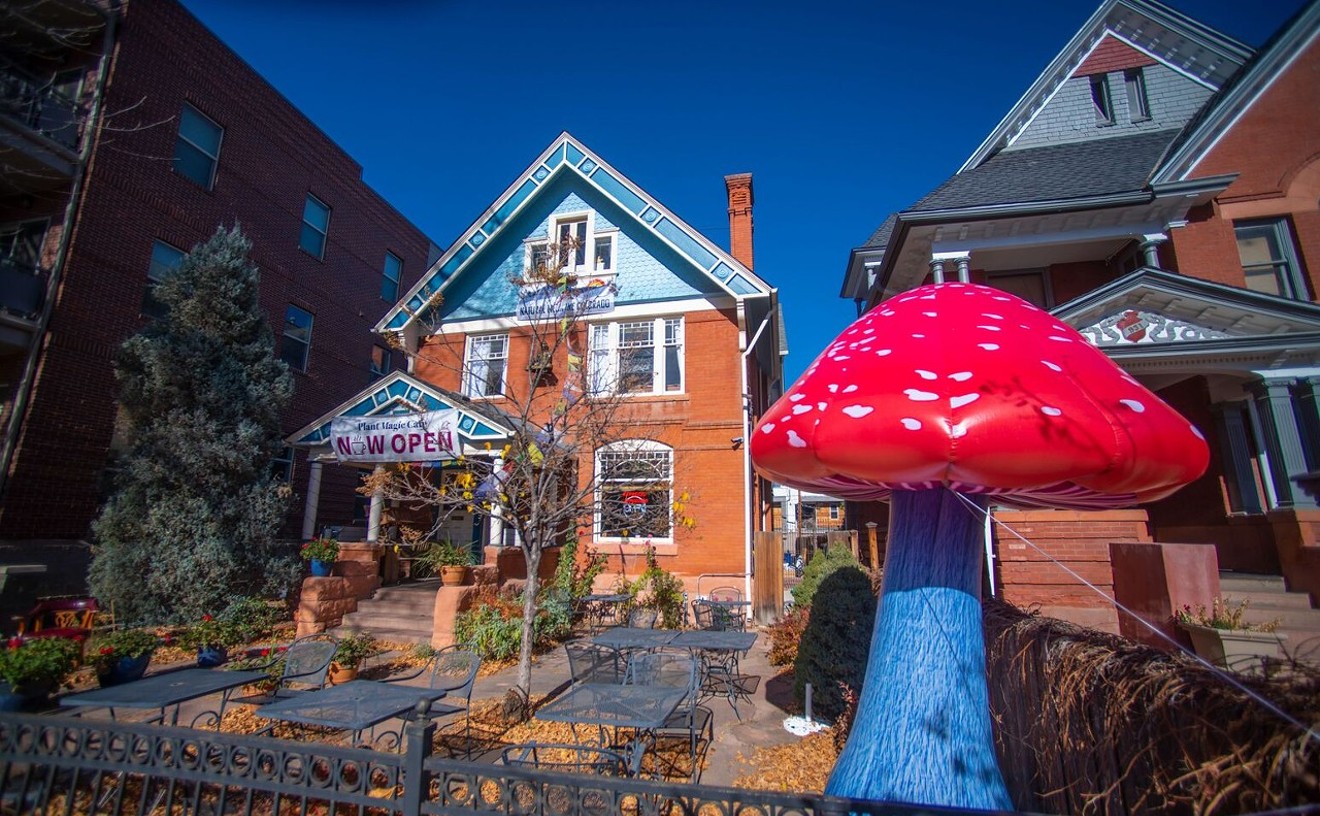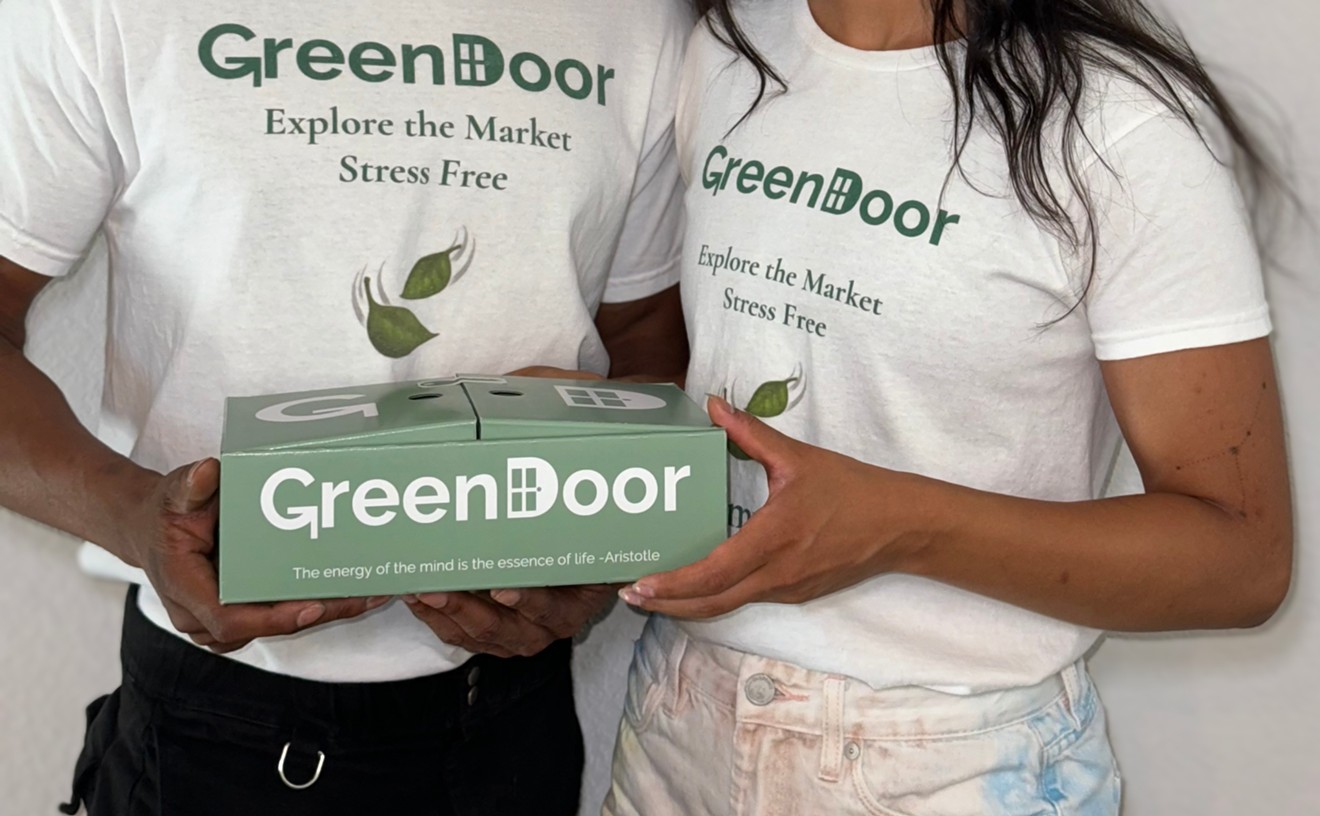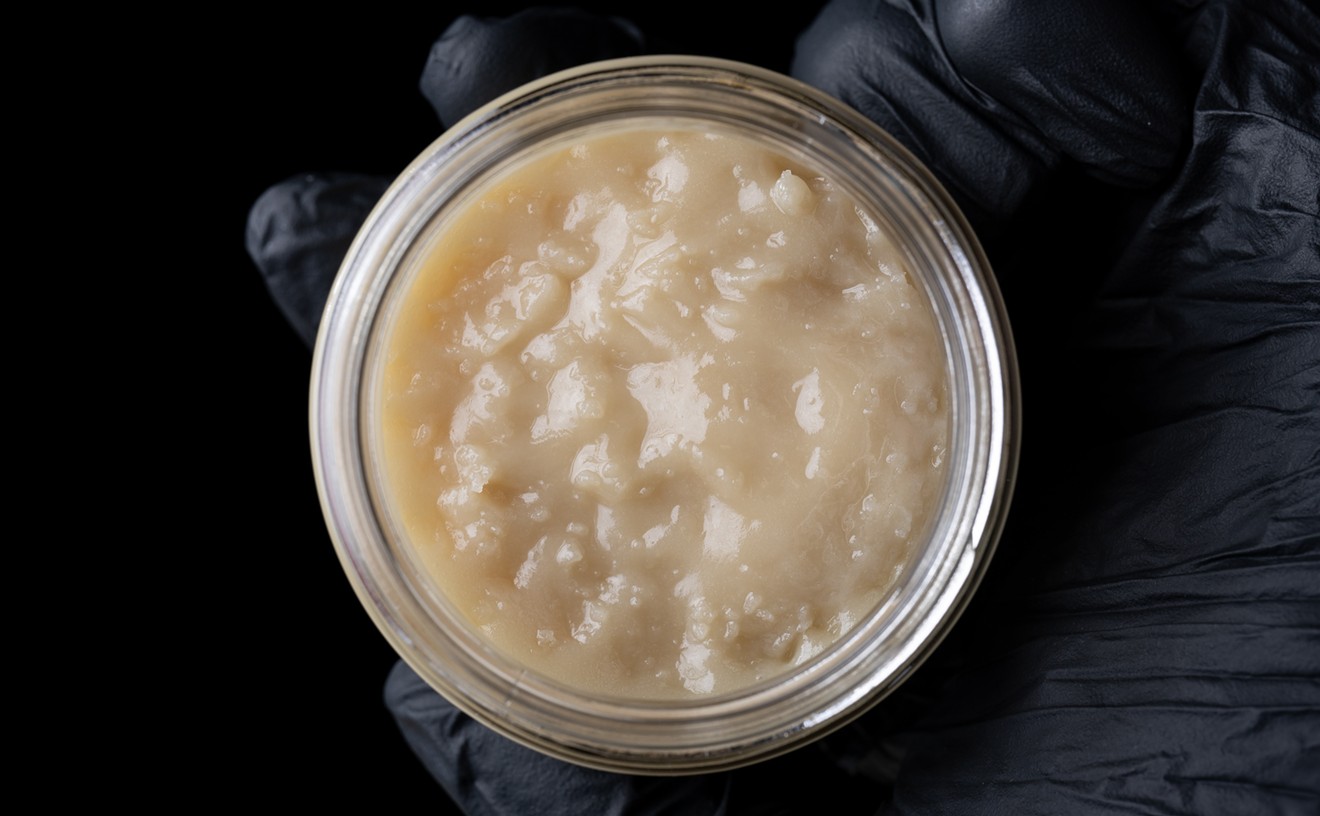It all seems like a forgotten era now, but hemp and CBD had a real moment in the late 2010s. There was a time when Colorado owned this new booming trade, thanks to the state's cannabis laws, with hemp growers and CBD extractors even buying out and replacing marijuana brands for a short time. Then the bottom hit.
The public began moving on from hemp-derived CBD products in 2020, and the sector hasn't rebounded since the COVID-19 pandemic. Part of this was bad luck, but much of the downfall came from within, according to former hemp farmhand Floyd Wooderson. A worker in Colorado's hemp and CBD trades during their rise and downfall, Wooderson documented his experiences with the "dark side" of CBD in his new book, Wolves of Hemp Street.
We caught up with Wooderson to learn more about his account, now available online, of the shady actors and snake oil salesmen in Colorado hemp.
Westword: How do you think the public views CBD? Did that play a part in your motivation to write the book?
Floyd Wooderson: I think the general public views CBD as a wonderful treatment to a host of ailments. I completely agree, as it has helped me out substantially. On that note, this book was written to entertain, but also to educate [people] on the CBD industry and the cutthroat world it was and still is.
You write about a "dark side" of the CBD space in your book. Can you tell us more about what that is, or provide some examples?
Oh, yes, the "dark side" of CBD. See, a lot of CBD and hemp books out there only talk about "the wonderful things CBD can treat" or how "hemp can save the world." It's not that I don't agree with those statements; I very much do. But no one, to my knowledge, has written about the behind-the-scenes shadiness of the hemp rush from 2018 to 2021. In my time on the hemp farm, I had to deal with dozens of shady companies, individuals and business practices who were all in it for the money. They cared not about whether they completely screwed people over like farmers, consumers and the lot — giving them bad seed or "snake oil" CBD tinctures, just to name two examples.
Did you become jaded about the CBD space?
Yes and no. I love the plant. I love the product. I loved the excitement behind it. But in the words of Randy Marsh from South Park, "They ain't got no ’tegridy." Like I mentioned before, there were some shady people out there without any integrity. I didn't like that. Did I make mistakes? Sure. Absolutely. But was I out there purposely screwing people over? Absolutely not. If there is any part of the industry that jades me, it's the truly crappy people in it. But don't get me wrong, there are absolutely wonderful people in the space! They continue to serve, innovate and better the industry.
Based on your experiences, how many people in the CBD industry actually cared about or believed in CBD?
Good question. It kind of relates to the previous question as well. I'm going to give it the benefit of the doubt and say that 75 percent of the people in it now are in it for the right reasons and truly believe in the product. A couple years back during the boom, it may have been closer to fifty-fifty.
At what point did the "Green Rush" end in Colorado? How does the CBD space look now compared to when you entered in 2018?
I think the Green Rush ended at the onset of the pandemic. It started with the lack of infrastructure. There were too many bottlenecks in the industry. For example, there weren't enough extractors to extract the overwhelming supply of hemp grown in 2019. This absolutely crashed the market, and COVID was the unwanted cherry on top.
The space today is much smaller. I don't know the exact numbers, but at one point I believe there were around 500,000 acres of CBD hemp grown in the U.S. Now it's probably less than 100,000.
What impact did Delta-8 THC and other intoxicating products made from hemp-derived cannabinoids have on CBD?
I left around the time Delta-8 was starting to become a buzzword, but I think that was just the newest thing. In my opinion, people were always trying to push ahead toward the next best thing: CBC, CBG, CBN, Delta-8, etc. The CBD industry was nowhere near established enough by the time people were kind of moving on. I think we need to return to it, as I see it still having the most potential.
Do you see any parallels between CBD and the current mushroom boom Colorado is going through?
I do see some parallels between CBD and the new and popular mushroom boom. Whereas I do not have a lot of knowledge on the psychedelic side, I have taken reishi and lion's mane before, and it truly does wonders. But with Denver kind of leading the way with decriminalization of psilocybin, and other states and cities following, it kind of makes you wonder about if this is going to be another boom and bust or not. As the saying goes, "History may not always repeat itself, but it often rhymes."
After all of your experiences, what do you think about CBD? Where does it fit into our lives and daily use of supplements or cannabis products?
After all of my experiences, I still love CBD. I take it almost every day, but constantly make sure to vet the product or to get it from a reliable source I already know. Because if you have the real stuff, it really does work. I'm afraid that those who say "I never felt a thing" probably didn't have the real thing.
[
{
"name": "Air - MediumRectangle - Inline Content - Mobile Display Size",
"component": "12017618",
"insertPoint": "2",
"requiredCountToDisplay": "2",
"watchElement": ".fdn-content-body",
"astAdList": [
{
"adType": "rectangle",
"displayTargets": "mobile"
}
]
},{
"name": "Editor Picks",
"component": "17242653",
"insertPoint": "4",
"requiredCountToDisplay": "1",
"watchElement": ".fdn-content-body",
"astAdList": [
{
"adType": "rectangle",
"displayTargets": "desktop|tablet"
},{
"adType": "rectangle",
"displayTargets": "desktop|tablet|mobile"
}
]
},{
"name": "Inline Links",
"component": "18838239",
"insertPoint": "8th",
"startingPoint": 8,
"requiredCountToDisplay": "7",
"maxInsertions": 25
},{
"name": "Air - MediumRectangle - Combo - Inline Content",
"component": "17261320",
"insertPoint": "8th",
"startingPoint": 8,
"requiredCountToDisplay": "7",
"maxInsertions": 25,
"watchElement": ".fdn-content-body",
"astAdList": [
{
"adType": "rectangle",
"displayTargets": "desktop|tablet"
},{
"adType": "rectangle",
"displayTargets": "desktop|tablet|mobile"
}
]
},{
"name": "Inline Links",
"component": "18838239",
"insertPoint": "8th",
"startingPoint": 12,
"requiredCountToDisplay": "11",
"maxInsertions": 25
},{
"name": "Air - Leaderboard Tower - Combo - Inline Content",
"component": "17261321",
"insertPoint": "8th",
"startingPoint": 12,
"requiredCountToDisplay": "11",
"maxInsertions": 25,
"watchElement": ".fdn-content-body",
"astAdList": [
{
"adType": "leaderboardInlineContent",
"displayTargets": "desktop|tablet"
},{
"adType": "tower",
"displayTargets": "mobile"
}
]
}
]

